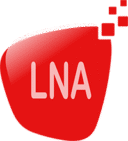WASHINGTON, D.C. July 15 2025 – In a high-profile diplomatic meeting on Tuesday, July 15, 2025, U.S. Secretary of State Marco Rubio met with Italian Foreign Minister Antonio Tajani to reinforce trans-Atlantic unity amid escalating global security challenges. The discussions, held against the backdrop of recent U.S. military strikes on Iran’s nuclear facilities, focused on preventing Tehran from acquiring nuclear weapons and addressing China’s destabilizing actions in the South China Sea.

The meeting, marked by a formal handshake in a grand diplomatic setting adorned with American and Italian flags, underscored a shared commitment to counter Iran’s nuclear ambitions. Rubio emphasized that both nations agree Iran must never develop or acquire nuclear weapons, a stance reinforced by the U.S.’s recent strikes on Iran’s Fordow nuclear site. These actions, dubbed “Midnight Hammer” by some analysts, were framed as a necessary enforcement of former President Trump’s red line policy, following decades of failed diplomatic efforts under the now-defunct Joint Comprehensive Plan of Action (JCPOA), which collapsed after the U.S. withdrawal in 2018.
This meeting builds on a June 24, 2025, call between Rubio and Tajani, where the two leaders laid the groundwork for coordinated efforts to curb Iran’s nuclear program. The latest talks also highlighted growing concerns over China’s aggressive military posturing in the South China Sea, which Rubio described as a threat to trans-Atlantic security. The U.S. has urged its allies, including Italy, to address Beijing’s actions, which have intensified in recent months with increased naval drills and territorial claims.
Italy’s historical relationship with China, dating back to diplomatic ties established during the Qing dynasty and formalized in 1866, adds a layer of complexity to its position. While Italy has maintained economic ties with Beijing, its alignment with the U.S. on security matters reflects a strategic pivot amid rising tensions. The Italian government has yet to issue an official statement on the meeting, but sources suggest Rome is prepared to support a stronger NATO response to both Iran and China.
The discussions come as global markets and diplomatic circles brace for further developments. The U.S. strikes on Iran, while hailed by some as a decisive act of deterrence, have drawn criticism from others who argue they risk escalating regional conflict. Meanwhile, China’s actions continue to strain relations with Western allies, with the Atlantic Council noting a 15% increase in Chinese naval activity in disputed waters since January 2025.
